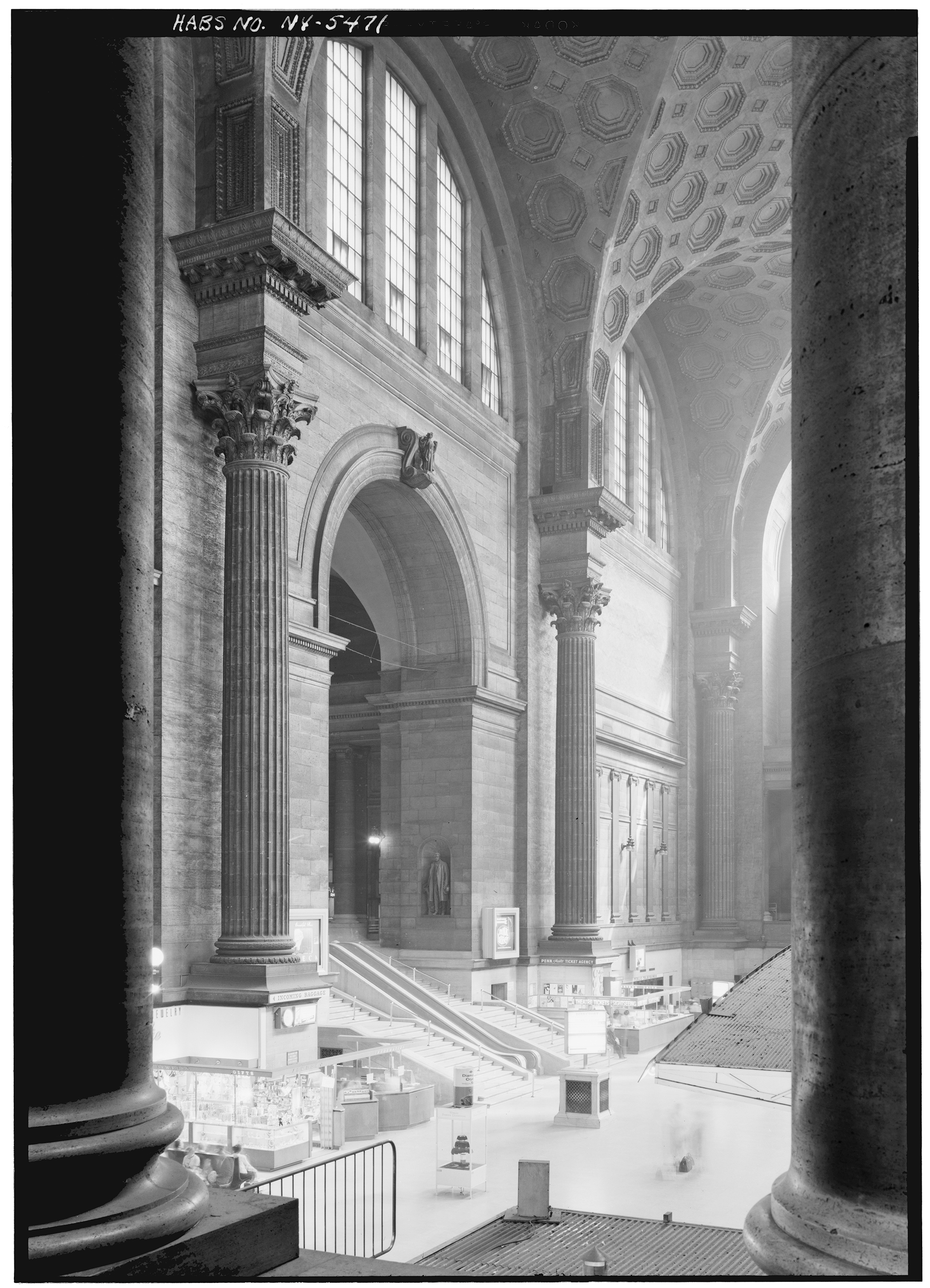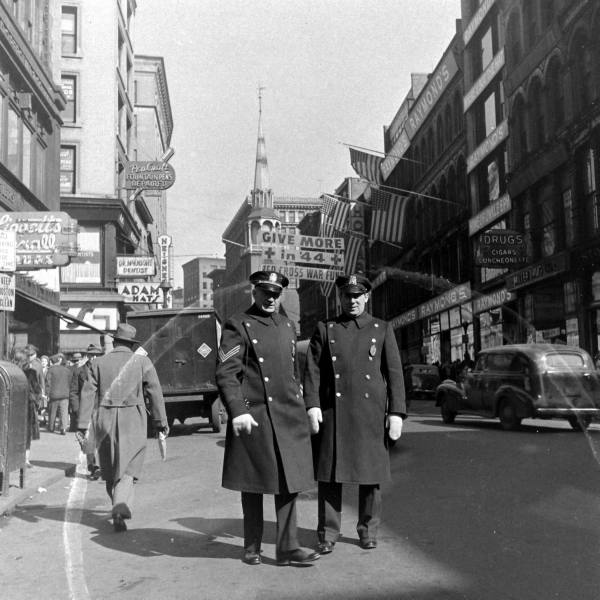
Pennsylvania Station, New York City. May 10th, 1962. Photograph by Cervin Robinson. (via)
Official website of the author

Pennsylvania Station, New York City. May 10th, 1962. Photograph by Cervin Robinson. (via)
The modern conservative is engaged in one of man’s oldest exercises in moral philosophy; that is, the search for a superior moral justification for selfishness.
John Kenneth Galbraith
We now live in a country in which the bottom 40 percent (120 million people) owns just 0.3 percent of the wealth. Data of this kind make one feel that one is participating in a vast psychological experiment: Just how much inequality can free people endure? Have you seen Ralph Lauren’s car collection? Yes, it is beautiful. It also cost hundreds of millions of dollars. “So what?” many people will say. “It’s his money. He earned it. He should be able to do whatever he wants with it.” In conservative circles, expressing any doubt on this point has long been synonymous with Marxism.
And yet over one million American children are now homeless. People on Medicare are being denied life-saving organ transplants that were routinely covered before the recession. Over one quarter of our nation’s bridges are structurally deficient. When might be a convenient time to ask the richest Americans to help solve problems of this kind? How about now?
November 22nd, 1963: President Kennedy reaches out to the crowd gathered at the Hotel Texas Parking Lot Rally in Fort Worth, Texas. (Cecil Stoughton, White House / John F. Kennedy Library) (via)
A great many people think they are thinking when they are merely rearranging their prejudices.
William James

Photo by Walter Sanders for Life Magazine.
Saturday afternoon, a new stage play of “The Friends of Eddie Coyle” was unveiled at the Burren in Somerville. The little theater at the back of the bar was packed. I’d guess there were 150 or so people there. There was a wonderful excited mood in the room. This was a one-off performance of a work in progress, a peek into the process of how a play is shaped. It was only a staged reading — actors reading from scripts, no costumes or sets — so it is obviously too early to comment on the production itself, but so far it looked very promising.
The difficulties and pleasures of staging “Eddie Coyle” are about what you’d expect. Higgins’ wised-up streetcorner dialogue begs to be spoken aloud, and a lot of the novel’s best riffs are recited seemingly verbatim. The hard part is compressing the story onto a small stage, especially on a limited budget. The novel includes scenes in cars, a bank robbery, a home invasion, a trashy trailer home, a supermarket parking lot, a Bruins game at Boston Garden. Worse, in the book the plot itself is shadowy. Higgins does not spell out what is happening to Eddie. He lets the dialogue swirl around and around, and it is up to the reader to piece the story together, just as it is up to Eddie. On a first reading, the book can be confusing. Obviously that won’t work on stage. So playwright Bill Doncaster has altered a few scenes and dropped others to streamline and clarify. The results were mostly good. Some incidents (the arrest of Jackie Brown, the invasion of a banker’s home in Lynn) were hard to follow if you didn’t know the story beforehand. But, again, this was only a walk-through on a bare stage. The play is a work in progress. When it is properly staged and after some tinkering with the script, these things will become clearer.
More important than all these technical things, the play is true to the spirit of Higgins’ novel, truer even than the 1973 movie starring Robert Mitchum (which I love). Mitchum gave a great performance as Eddie Coyle, but to me he was miscast. Mitchum was a leading man, big, charismatic, cool. Eddie Coyle is none of these things. He is a loser at the bottom rung of semi-organized crime, past his prime, used by everyone around him from the guy who hires him to drive a truckload of stolen booze to the FBI agent who squeezes him for tips. It would have been a good role for a “Midnight Cowboy”-era Dustin Hoffman rather than Mitchum. Eddie is Ratso Rizzo with a Boston accent and a few extra pounds. Doncaster’s play gets this bottom-feeding world just right.
The three lead actors are wonderful. Eddie is played here by Paulo Branco, a local actor who reminded me of the film actor Dan Hedaya. Branco plays Eddie as an anti-Mitchum: desperate, whiny, weak, dense, a loser just smart enough to know how much danger he is in. Great casting, great choices by the actor. To watch Branco cheer like an exuberant little kid for Bobby Orr gives you a completely different Eddie Coyle than Mitchum’s cool, heavy-lidded portrayal. (And if you have to ask why those 1969-70 Bruins would make a grown man cheer like a kid, you are either too young to remember or you aren’t from Boston. I know where I was on Mothers Day in 1970.)
Rick Park as Dillon is the other cornerstone of this production. I chatted with Bill Doncaster yesterday, and he mentioned that he saw Dillon as a sort of Iago, a perspective that really sharpens this character. Dillon is even more important here than in the book or movie. Rick Park brings some of the heaviness and watchful intelligence that Peter Boyle brought to the role in the film. His Dillon is older, wiser, wearier than Boyle’s, a sharper character even than Higgins drew in the book.
The other standout in the cast is Peter Darrigo, who makes a completely convincing Boston tough guy in the role of Coyle’s associate Jimmy Scalisi. On the down side, Tom Berry seems to be searching still for how to play the FBI agent Dave Foley. Foley comes off here as just another wiseguy rather than a button-down Fed who works in an office, not on a streetcorner. In the story, Foley uses Eddie and betrays him without a second thought. That requires a more complex character than Berry has managed to capture so far. But this is a work in progress — it is too early to criticize a performance. It is hard to hold back, though. I am rooting for this production, so I want Berry to succeed.
So far the play looks great. Doncaster tells me he is still searching for a theater to stage it. Here’s hoping he finds one. It is hard to believe that after all these years there could be a fresh take on The Friends of Eddie Coyle, but this could be one. If you’re a Bostonian, you should be rooting for this play to make it.
More info from the Boston Globe here. You can also join a Facebook page for the production here.
Africa is larger than the U.S., China, India, Japan, and all of Europe combined. Via (click to view full size).